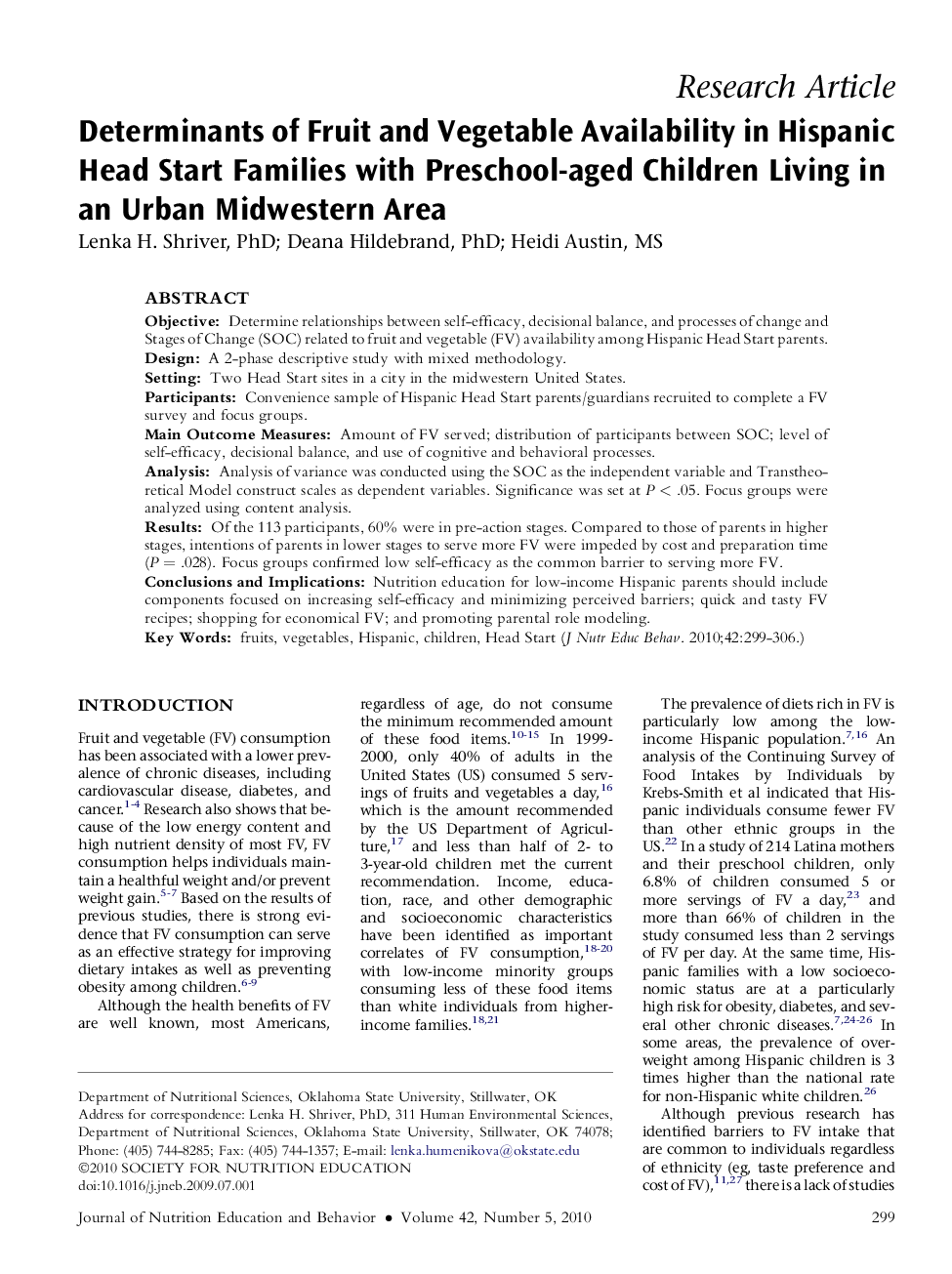| کد مقاله | کد نشریه | سال انتشار | مقاله انگلیسی | نسخه تمام متن |
|---|---|---|---|---|
| 362484 | 620632 | 2010 | 8 صفحه PDF | دانلود رایگان |

ObjectiveDetermine relationships between self-efficacy, decisional balance, and processes of change and Stages of Change (SOC) related to fruit and vegetable (FV) availability among Hispanic Head Start parents.DesignA 2-phase descriptive study with mixed methodology.SettingTwo Head Start sites in a city in the midwestern United States.ParticipantsConvenience sample of Hispanic Head Start parents/guardians recruited to complete a FV survey and focus groups.Main Outcome MeasuresAmount of FV served; distribution of participants between SOC; level of self-efficacy, decisional balance, and use of cognitive and behavioral processes.AnalysisAnalysis of variance was conducted using the SOC as the independent variable and Transtheoretical Model construct scales as dependent variables. Significance was set at P < .05. Focus groups were analyzed using content analysis.ResultsOf the 113 participants, 60% were in pre-action stages. Compared to those of parents in higher stages, intentions of parents in lower stages to serve more FV were impeded by cost and preparation time (P = .028). Focus groups confirmed low self-efficacy as the common barrier to serving more FV.Conclusions and ImplicationsNutrition education for low-income Hispanic parents should include components focused on increasing self-efficacy and minimizing perceived barriers; quick and tasty FV recipes; shopping for economical FV; and promoting parental role modeling.
Journal: Journal of Nutrition Education and Behavior - Volume 42, Issue 5, September–October 2010, Pages 299–306